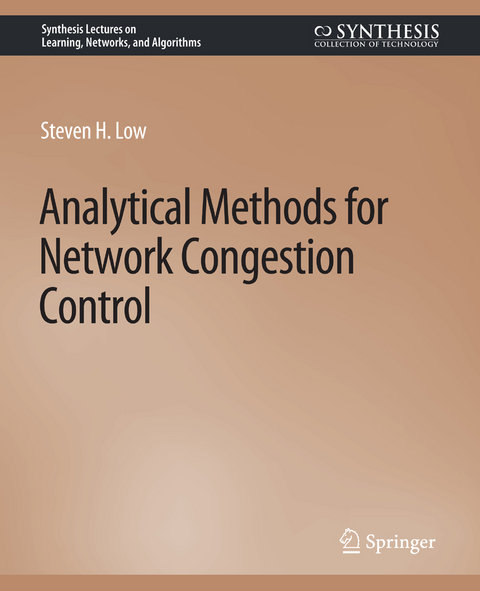
Analytical Methods for Network Congestion Control
Springer International Publishing (Verlag)
978-3-031-79274-8 (ISBN)
Steven H. Low has been a professor with the Department of Computing & Mathematical Sciences and the Department of Electrical Engineering at California Institute of Technology (Caltech) since 2000. Before that, he was with AT&T Bell Laboratories, Murray Hill, NJ from 1992-1996, and with the University of Melbourne, Australia from 1996-2000. He has been a co-recipient of IEEE best paper awards, on the editorial boards of major journals in networking and power systems, and Honorary/Chair professors in Australia, China, and Taiwan. He is an IEEE Fellow. His research on communication networks has been accelerating more than 1TB of Internet traffic every second since 2014. He was a member of the Networking and Information Technology Technical Advisory Group for the US President's Council of Advisors on Science and Technology (PCAST) in 2006. He received his B.S. from Cornell and a Ph.D. from UC Berkeley, both in Electrical Engineering.
Preface.- Acknowledgments.- Notations.- Congestion Control Models.- Equilibrium Structure.- Global Stability: Lyapunov Method.- Global Stability: Passivity Method.- Global Stability: Gradient Projection Method.- Local Stability with Delay.- Bibliography.- Author's Biography.
| Erscheinungsdatum | 06.06.2022 |
|---|---|
| Reihe/Serie | Synthesis Lectures on Learning, Networks, and Algorithms |
| Zusatzinfo | XX, 193 p. |
| Verlagsort | Cham |
| Sprache | englisch |
| Maße | 191 x 235 mm |
| Gewicht | 416 g |
| Themenwelt | Informatik ► Theorie / Studium ► Künstliche Intelligenz / Robotik |
| Technik ► Elektrotechnik / Energietechnik | |
| ISBN-10 | 3-031-79274-2 / 3031792742 |
| ISBN-13 | 978-3-031-79274-8 / 9783031792748 |
| Zustand | Neuware |
| Haben Sie eine Frage zum Produkt? |
aus dem Bereich


